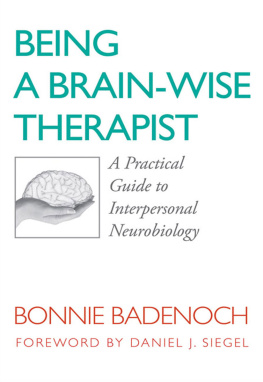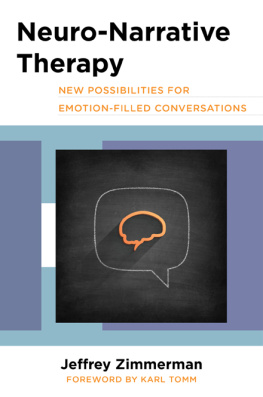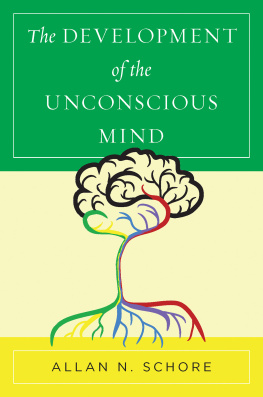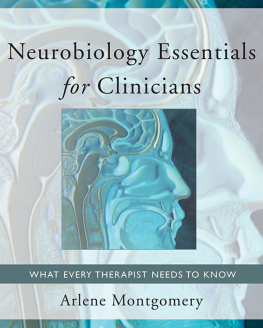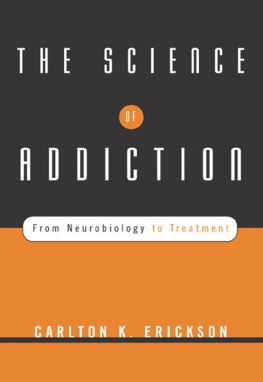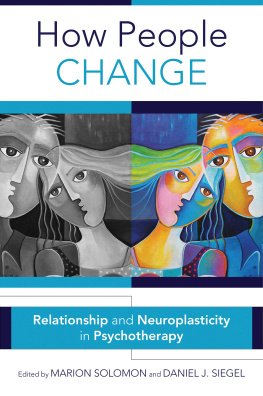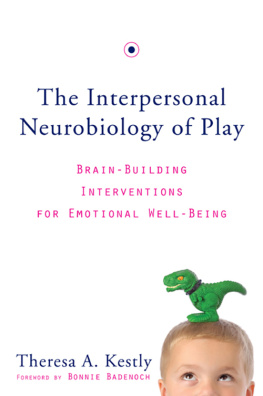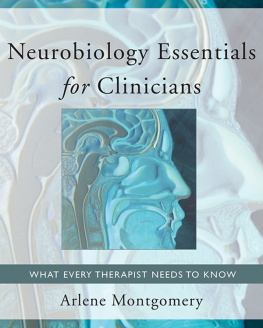The Norton Series on Interpersonal Neurobiology
Allan N. Schore, PhD, Series Editor
Daniel J. Siegel, MD, Founding Editor
The field of mental health is in a tremendously exciting period of growth and conceptual reorganization. Independent findings from a variety of scientific endeavors are converging in an interdisciplinary view of the mind and mental well-being. An interpersonal neurobiology of human development enables us to understand that the structure and function of the mind and brain are shaped by experiences, especially those involving emotional relationships.
The Norton Series on Interpersonal Neurobiology will provide cutting-edge, multidisciplinary views that further our understanding of the complex neurobiology of the human mind. By drawing on a wide range of traditionally independent fields of researchsuch as neurobiology, genetics, memory, attachment, complex systems, anthropology, and evolutionary psychologythese texts will offer mental health professionals a review and synthesis of scientific findings often inaccessible to clinicians. These books aim to advance our understanding of human experience by finding the unity of knowledge, or consilience, that emerges with the translation of findings from numerous domains of study into a common language and conceptual framework. The series will integrate the best of modern science with the healing art of psychotherapy.
A Norton Professional Book
Being a Brain-Wise Therapist
A Practical Guide to Interpersonal Neurobiology
Bonnie Badenoch

W. W. Norton & Company
New York London
Copyright 2008 by Bonnie Badenoch
Foreword copyright 2008 by W. W. Norton & Company, Inc.
All rights reserved
For information about permission to reproduce selections from this book, write to Permissions, W. W. Norton & Company, Inc., 500 Fifth Avenue, New York, NY 10110
Library of Congress Cataloging-in-Publication Data
Badenoch, Bonnie
Being a brain-wise therapist: a practical guide to interpersonal neurobiology / Bonnie Badenoch; foreword by Daniel J. Siegel.1st ed.
p.; cm.(Norton series on interpersonal neurobiology)
A Norton professional book.
Includes bibliographical references.
ISBN: 978-0-393-70554-6
ISBN: 978-0-393-70720-5 (e-book)
1. Psychotherapy. 2. Neurobiology. 3. Interpersonal relations. I. Title. [DNLM: 1. Psychotherapymethods. 2. Brainphysiology. 3. Interpersonal Relations. 4. Professional-Patient Relations. 5. Psychological Theory.
WM 420 B134b 2008]
RC480.5.B224 2008
616.89'14dc22 2008001374
1. Excerpt from The Brain is wider than the Sky reprinted by permission of the publishers and the Trustees of Amherst College from THE POEMS OF EMILY DICKINSON: READING EDITION, Ralph W. Franklin, ed., Cambridge, Mass.: The Belknap Press of Harvard University Press, Copyright 1998, 1999 by the President and Fellows of Harvard College. Copyright 1951, 1955, 1979, 1983 by the President and Fellows of Harvard College.
2. Reprinted with the permission of Scribner, an imprint of Simon & Schuster Adult Publishing Group, from AN ALCHEMY OF MIND by Diane Ackerman. Copyright 2004 by Diane Ackerman. All rights reserved.
For my
daughter
Kate
The Brainis wider than the Sky
Forput them side by side
The one the other will contain
With easeand Youbeside
Emily Dickinson
The Brain is Wider Than the Sky1
Ultimately, I find consciousness a
fascinating predicament for matter
to get into.
Diane Ackerman
An Alchemy of Mind 2
Contents
Foreword
Being a Brain-Wise Therapist is filled with the wisdom of a seasoned front-line therapist who writes like a poet and understands science as if she were a full-time academician. What a rewarding combination! Journeying through these pages offers us an opportunity to explore the fundamental ideas of interpersonal neurobiology (IPNB), an interdisciplinary view of the mind and human development built upon a wide range of sciences and therapeutic arts. Through theory and practice, the stories ahead enable us to see the direct applications of this approach in various clinical situations.
An astute learner and deep thinker, Bonnie Badenoch has been a student and colleague with whom I have been fortunate to dive deeply into this exciting new field. When she first presented the idea of a workbook that revealed the depth of her understanding and her passion for integrating these ideas into clinical practice, the notion of this book was born. It is an honor to write this foreword for what has blossomed into a wonderful guide to this emerging field. IPNB is an approach that seeks the consilience across distinct disciplines so that we can find the parallel principles that emerge from different efforts to understand the world and ourselves. This integrative approach reveals a larger picture, the whole elephant view of human experience and mental health.
Applying scientific ideas to the field of psychotherapy is no easy task. Without rigor, it is easy to slip into overly simplistic views of complex conditions. This risk is always present when we draw on objective research findings and attempt to create clear conclusions that then can be applied to the subjective world of clinical interventions. In this book you will find an artists hand that paints a clear and useful picture as it reaches a beautiful balance between what we know from science and what may possibly be occurring in the subjective inner and interpersonal worlds of our therapeutic efforts.
Beginning with theory and moving deeply into practical applications, this wise author takes us on an enjoyable educational journey into the lives of individuals and families. The pathways toward healing are illuminated by her inviting narratives as she seamlessly weaves scientific theory with humanistic interventions. These ventures into the clinical art of healing continually weave the threads of interpersonal neurobiology into the tapestry of a coherent framework of the mind, the brain, and human relationships. This text serves as a powerful starting place for those new to this interdisciplinary approach and as a deepening review for clinicians already practicing with this view of the brain in mind.
For some, science has no place in the therapists mind. Since science doesnt even know how the brain creates the mind, why bother knowing anything about science? some cautious critics question. Yet with careful analysis of the research findings, conservative attempts to illuminate a larger and integrated picture of the whole can be both possible and quite fruitful. When we stay close to the science, as Bonnie Badenoch does in her writing, we then build a solid foundation for all that follows.
Interpersonal neurobiology embraces the perspective of a triangle of well-being. The three points of this figure are made up of relationships, the mind, and the brain. Though some scientists would cry out dualism if we even see mind as more than the mere activity of the brain, modern research actually suggests that the causal arrows of brain causing mind are actually bidirectional. The mind can also be seen to use the brain to create itself. The focus of our energy and information flow, one aspect of mind, can actually change the activity and the structure of the brain itself. In the IPNB model, we are being even more politically incorrect by stating that there are not just two but actually three irreducible elements of human experience. The mind in this perspective is the process that regulates the flow of energy and information. Relationships are how we share energy and information. The nervous system of our bodies embeds mechanisms by which energy and information can flow. This sharing, regulation, and mechanism cannot be reduced into each other. In this way, we examine energy and information flow as being fundamental to human experience.

